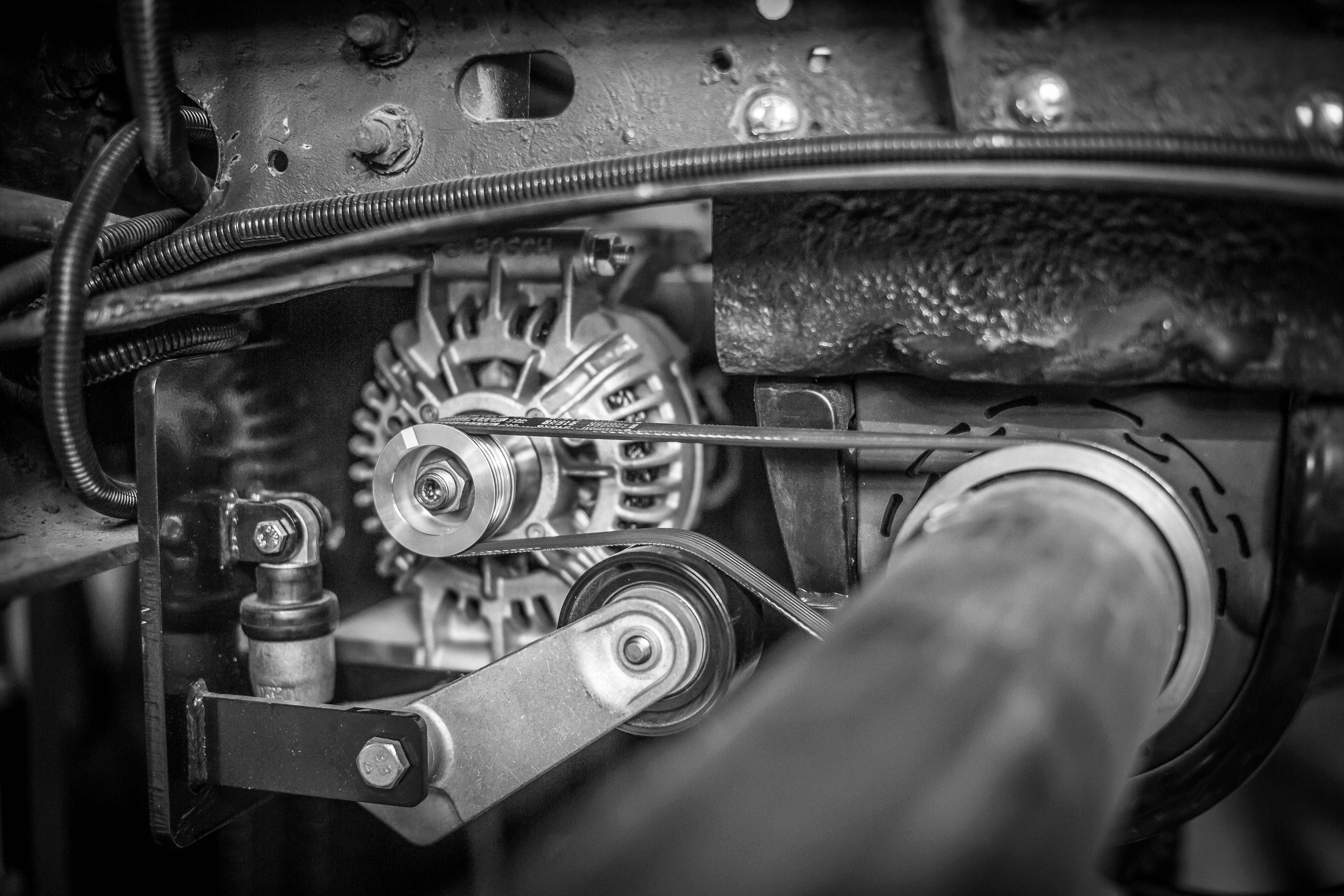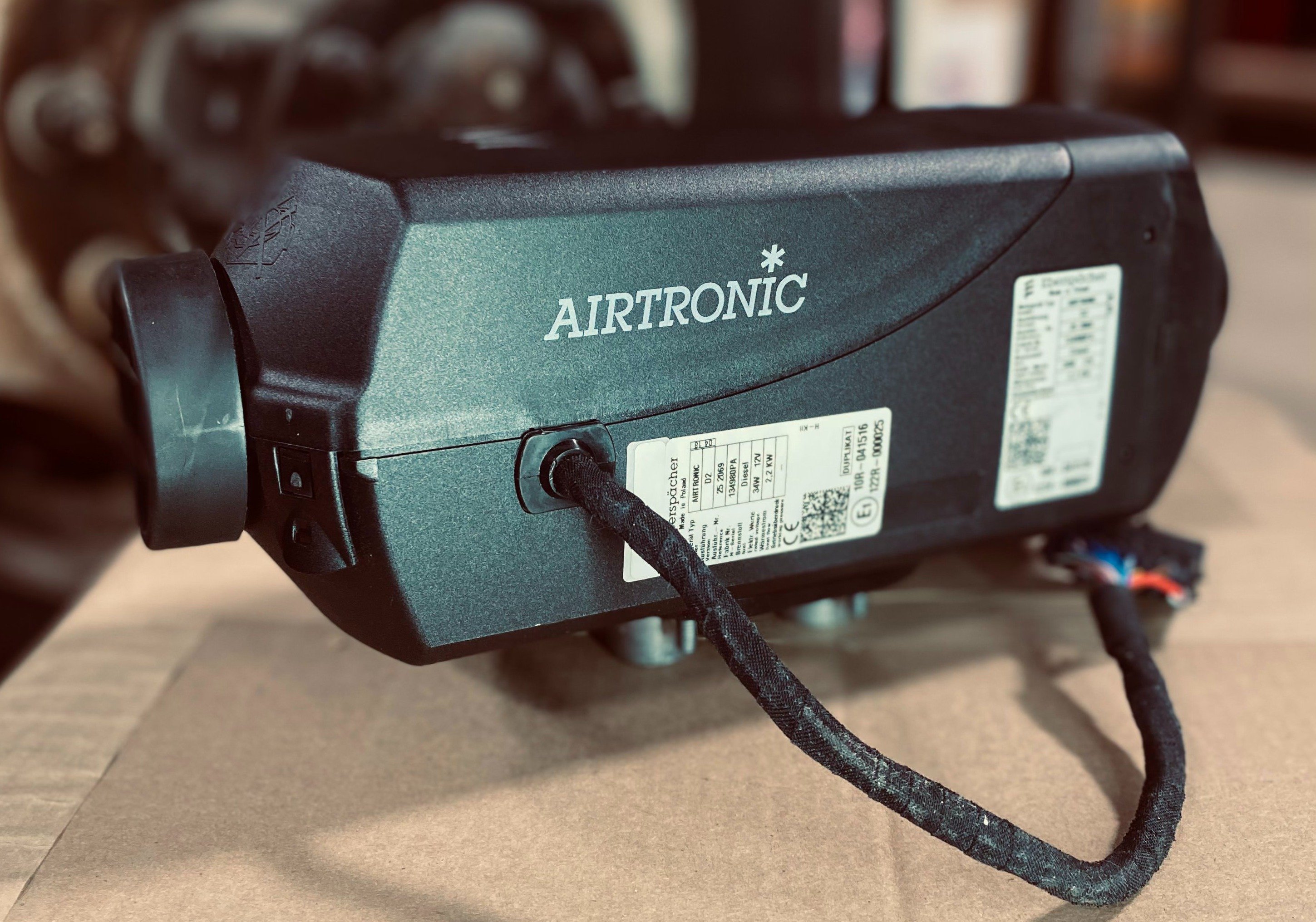The Risks of Upgrading Your Engine Alternator
by Ben Dibble | Sep 13, 2024 | | 0 Comments
Discover the potential risks and drawbacks of upgrading your engine alternator and make an informed decision.
Understanding Engine Alternators
Engine alternators are an important component of a vehicle's electrical system. They are responsible for converting mechanical energy from the engine into electrical energy to power the vehicle's electrical system and charge the battery. Understanding how engine alternators work is crucial before considering an upgrade.
Upgrading an engine alternator involves replacing the existing alternator with a higher-capacity or more efficient model. This can provide benefits such as increased power output, improved charging capabilities, and enhanced electrical system performance. One typically considers upgrading an engine alternator when their truck requires a greater electrical load. This can come from the addition of an electric APU or more sensors. However, it is important to weigh these benefits against the potential risks and drawbacks of the upgrade.
Risks and Drawbacks to Consider
While upgrading an engine alternator can offer benefits, it also comes with certain risks and drawbacks that should not be overlooked. Some of the key considerations include:
Compatibility Issues: Not all alternators are compatible with every vehicle. Upgrading to an alternator that is not specifically designed for your vehicle's make and model can lead to compatibility issues, resulting in improper fitment or electrical system malfunctions.
Overloading and Overheating: Upgrading to a higher-capacity alternator without considering the electrical load requirements of your vehicle can lead to overloading and overheating. This can cause damage to the alternator and electrical system components .
Considering these risks and drawbacks is essential to make an informed decision about whether to upgrade your engine alternator. It is recommended to consult with a professional mechanic or automotive electrician who can provide guidance based on your specific vehicle and electrical system requirements.
Compatibility Issues
One of the primary risks of upgrading an engine alternator is compatibility issues. Not all alternators are designed to fit every vehicle make and model. Each vehicle has specific electrical system requirements, and using an alternator that is not compatible can lead to problems.
An incompatible alternator may not fit properly in the mounting bracket, resulting in improper alignment or inadequate belt tension. This can cause excessive wear on the alternator or other components, leading to premature failure.
Moreover, an incompatible alternator may not have the correct electrical connections or output specifications for your vehicle. This can result in electrical system malfunctions, such as inconsistent charging or voltage irregularities. Lastly, upgrading an engine alternator often requires recabling the vehicle as the existing cable could not handle the new alternator. This creates more compatibility issues along with the cost and time associated with recabling the vehicle.
To avoid compatibility issues, it is crucial to consult with a professional who can recommend an alternator that is specifically designed for your vehicle's make and model.
Overloading and Overheating
Another significant risk associated with upgrading an engine alternator is overloading and overheating. Upgrading to a higher-capacity alternator may seem beneficial in terms of increased power output, but it is essential to ensure that the electrical load requirements of your vehicle can be properly supported. Often, upgrading an engine alternator is to charge auxiliary batteries beyond the vehicle's starter batteries to power appliances like electric APUs or liftgates.
If the upgraded alternator is supplying more electrical power than the vehicle's electrical system can handle, it can lead to overloading. This can cause excessive strain on the alternator, wiring, and other electrical components, potentially leading to premature failure. There are even cases where the upgraded engine alternator will not provide enough power to the auxiliary components.
Overloading can also result in overheating of the alternator, especially if the electrical demand exceeds the cooling capacity of the alternator. Overheating can degrade the performance and lifespan of the alternator, and in extreme cases, it can pose a fire hazard.
To prevent overloading and overheating, it is crucial to assess the electrical load requirements of your vehicle and ensure that the upgraded alternator can handle the increased demand. Consulting with an automotive electrician can help determine the appropriate alternator capacity for your specific needs.
If you are considering upgrading your engine alternator, an alternative to that option would be adding Blackburn's hybrid charging solution, RelGen, to your fleet. You would get the added benefits of extra charging capabilities without the downsides.
To see how RelGen works, check out this animation
Most Popular
Categories
- RelGen (18)
- Anti-Idle (14)
- Charging Solutions (13)
- Battery Recharge (11)
- Electric APU (10)
- Liftgates (10)
- Preventative Maintenance (7)
- Voltage Loss (6)
- DC/DC converters (4)
- Driver Retention (4)
- Uptime (4)
- fuel savings (3)
- 48V (2)
- Blackburn Team (2)
- Solar Panels (2)
- Consulting (1)
- DOT compliance (1)
- Espar Airtronic D2 Diesel Fired Air Heater (1)
- Financing (1)
- Hardware as a Service (1)
- Power Wall (1)
- alternators (1)
- data (1)
Archives
- October 2020 (4)
- November 2020 (4)
- May 2020 (3)
- September 2020 (3)
- March 2021 (3)
- April 2021 (3)
- July 2020 (2)
- August 2020 (2)
- January 2021 (2)
- June 2020 (1)
- July 2021 (1)
- August 2021 (1)
- October 2021 (1)
- January 2022 (1)
- February 2022 (1)
- March 2022 (1)
- June 2022 (1)
- October 2022 (1)
- January 2024 (1)
- March 2024 (1)
- May 2024 (1)
- September 2024 (1)











